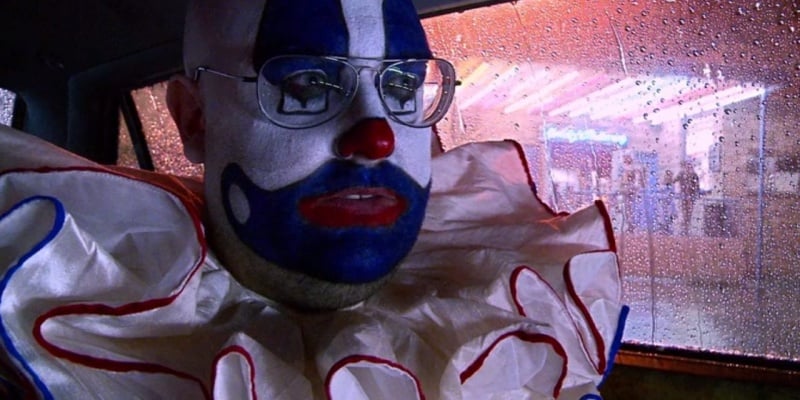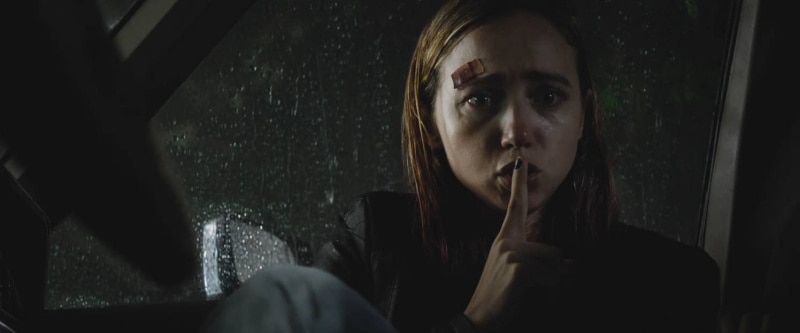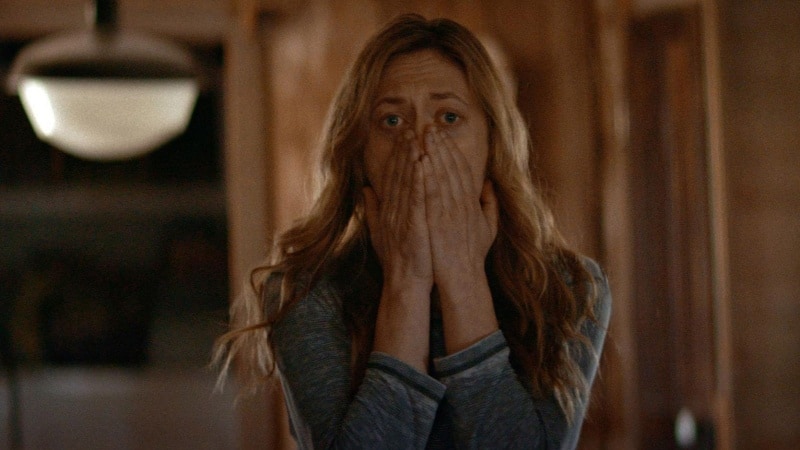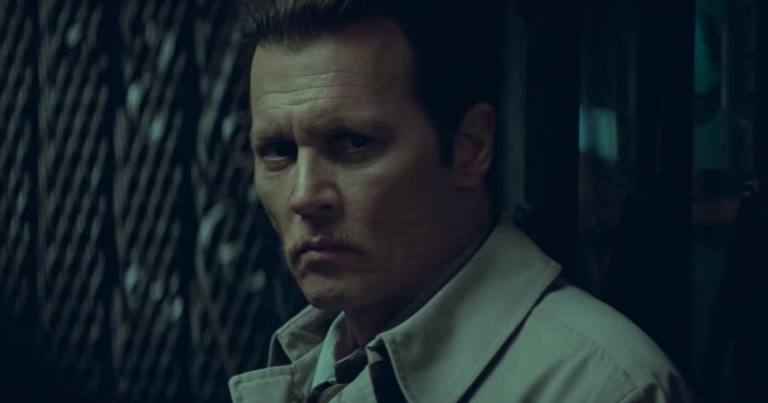Bryan Bertino and 21st-Century Nihilism
Shades of nihilism are no stranger to the horror genre. The human body is so often manipulated and destroyed in the face of an evil force. However, in the 21st century, a new type of nihilistic cinema was born in France with the New French Extremity. After the terrorist attacks of 9/11, the world felt defenseless, and the films within this movement, such as Martyrs and High Tension, depend on the complete destruction of the human body to convey a sense of hopelessness: bad things happen to normal people and it cannot be stopped. But in the US, while there was a rise in torture porn films such as Saw and Hostel, there wasn’t such a pervading sense of nihilism in mainstream American horror cinema.
Enter Bryan Bertino, who burst into the film world in 2008 with his home invasion thriller, The Strangers. With his killers’ reasoning simply being “because you were home,” Bertino established himself as a filmmaker who was not interested in happy endings. Instead, his work encapsulates the deep sense of insecurity that came with post-9/11 America and pervades today. His entire filmography speaks to the futility of humanity trying to gain control over danger and how sometimes terrible things just happen to good people. There is no rhyme or reason as to why Bertino’s characters are targeted. Their horrific fate is nothing but random chance.
The shock of The Strangers during its initial release was particularly centered on that key phrase: “Because you were home.” Kristen (Liv Tyler) and James (Scott Speedman) are staying at his family cottage in the middle of nowhere. As they settle in for the night, they receive loud knocks at the door from a young woman who asks, “Is Tamara home?” This unsettling interaction launches a series of events where three people in masks terrorize the couple for no other reason except for their sick enjoyment. They have no history with Kristen and James and just so happened to choose the house because the couple opened the door. Common courtesy is weaponized as an invitation to kill.
Kristen and James are barely able to inflict injury on the masked assailants. Even when they find a gun or grab a knife, they are unable to ever gain the upper hand against the three strangers. These are not bumbling criminals, but sociopaths who do this for the thrill of the hunt. They know what to expect from a desperate couple trying to save themselves, and they toy with them all night as a sick game. The only goal is pain — they don’t want money or revenge. They just want blood.
This invasion of the domestic space has a close correlation to post-9/11 cinema, as genre film even more explicitly established homes as a place of danger rather than safety. While home invasion was not a new topic, in the 2000s, homes were most often invaded by random strangers rather than monsters or bloodthirsty serial killers. The monsters are the humans themselves, capable of horrific violence.

Released in 2014, Mockingbird is Bryan Bertino’s venture into the found footage subgenre, which is arguably a nihilistic genre in general. A majority of films with that label contain raw footage of a person or group’s final days and therefore end with the death of everyone on camera. But Mockingbird goes the extra mile in having unnamed people, similar to The Strangers, torture three separate groups of people who are eventually brought together in an act of extreme violence. They place mysterious boxes on front doorsteps, each containing a video camera and a set of instructions. If they don’t follow instructions, they or someone they love will be killed.
Each group has a special label that makes them a figure instead of people: “The Family,” couple Tom and Emmy; “The Woman,” Beth; and “The Clown,” Leonard. Their humanity is removed and they are stripped of any illusion of agency; they become puppets for the sick enjoyment of whoever may be watching. Again, similar to The Strangers, the three groups of victims are never in control of the situation despite hiding in their homes with the doors and windows locked. Home means nothing when an assailant can predict every move.
But the most nihilistic element of Mockingbird is the reveal of who has always been in control of the situation: a group of children. Creepy, possessed children are a horror staple, but here, they are not possessed nor under the influence of an evil entity. Instead, it is implied, they are acting of their own volition and torturing adults as a sick game. Once again, human life is tossed around like a plaything, showing there is nothing left but the infliction of suffering.

Bryan Bertino’s third film, The Monster, released in 2016, is perhaps the biggest deviation from his typical films, incorporating an actual monster instead of just cruel humans. The threat feels much further from reality as the creature is attacking a mother (Zoe Kazan) and daughter (Ella Ballentine after they’ve broken down on a back road. The Monster more closely follows genre conventions in its setup and use of a fictional monster to create fear.
That is not to say that Bertino does not sprinkle in his love of misery, which is centered on the tumultuous relationship between a mother and her young daughter, who is painfully aware of her mother’s alcoholism. As the two try to navigate each other’s emotions, they are pummeled by this creature, which doesn’t care about their issues. They scream insults at one another, and neither mother nor daughter is safe from violence. Ultimately, Bertino continues to portray the death of the family not just by their resentment, but also by the mother’s eventual death. Yes, she protected her child, but that still leads to a message of families unable to truly stay together in the face of violence.

Bertino’s most recent film, 2020’s The Dark and the Wicked, is the culmination of his previous three films in how families become random targets of violence with no rhyme or reason. Again, the family, the domestic unit that is supposed to be the backbone of America and a safe place shielded from the horrors of the world, is systematically destroyed. No longer is the home safe; the place that was once a shelter becomes a hellscape.
When they receive news that their father is dying, siblings Louise (Marin Ireland) and Michael (Michael Abbott, Jr.) return home to the family farm despite their mother’s aggressive insistence that they don’t come. Her vague words of warning won’t stop her children, and upon their arrival, whatever is plaguing the farm extends its influence to Louise and Michael. It is an insidious force with only the goal to cause pain, and pain it brings as the entire family is haunted by horrific images that blur the lines between reality and delusion.
No matter what Louise and Michael do to try to stop the entity haunting their family, they are stopped in their tracks. In fact, the presence plaguing every second of their lives tells the siblings that their father did nothing wrong. They were just chosen at random. Just as in The Strangers, Mockingbird, and The Monster, these events don’t necessarily have a catalyst. They were just the unlucky ones that gained the attention of a bored entity that wants to wreak havoc.
Their father’s nurse commits suicide via a knitting needle through the eye. Their mother chops off her fingers and hangs herself in the barn. There is no absolution of sins or purification that can save them. The story is an inversion of the typical possession plot where a family can band together and conquer the evil together as one unified front. Instead of the eventual happy ending and banishing of the demon, each family member slowly succumbs to their doomed fate.
Suffice to say, Bertino’s filmography is universally bleak as he aims to navigate nihilism and the random nature of violence rather than creating mythical beings with elaborate backstories. In avoiding the characterization of his villains, they become all the more terrifying as they become looming and unknowable figures who enjoy nothing more than suffering.
In looking at how 21st-century cultural insecurities have been filtered through a genre lens, the work of Bryan Bertino should be at the top of the list as films that refuse to sugarcoat reality and instead lean into our deep sadness about the destruction of an illusion of safety.
The post Bryan Bertino and 21st-Century Nihilism appeared first on Film School Rejects.





